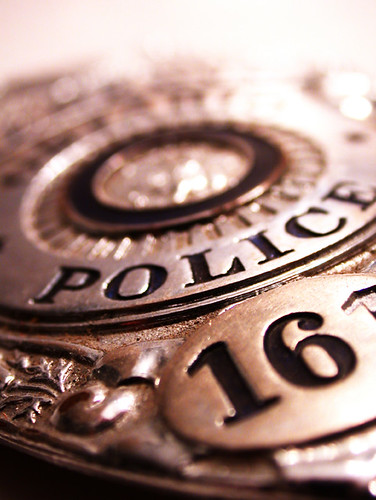We run our website the way we wished the whole internet worked: we provide high quality original content with no ads. We are funded solely by your direct support. Please consider supporting this project.
Non-Violence and Police Protection
Question: I am a President of a State University. As a frequent podcaster of your sermons and reader of your books, I’m seeking your advice on a matter. Because our campus is some distance from the police headquarters in our city, many within the State University are arguing that we should hired armed officers for protection. The call, ultimately, is mine to make. I share your views on the call of Jesus followers to love enemies and swear off all violence. So I’m wondering if you think it would be inconsistent for me to grant this request?
Answer. The question you raise is one of the most difficult ones a kingdom pacifist such as myself has to confront. So far as I can see, there is nothing ambiguous about what Jesus’ and Paul’s teaching on loving enemies and setting aside violence entails for a follower of Christ. I don’t believe there are any circumstances where it would be okay for me to kill another person. So too, as a pastor over a Christian congregation, I don’t see any ambiguity in what these teachings imply for a congregation of Jesus followers. There is no circumstance where it would be okay for us to use lethal force.
The ambiguity only arises in contexts such as yours. You are serving people in a context where the rules are completely different than they are within the kingdom. Followers of Jesus love enemies and refrain from violence out of faithfulness to Christ and because we are empowered by the Spirit to do so. But this is precisely what can’t be presumed in your context. Outside the kingdom, people operate on the basis of what seems ethical and on the basis of what makes sense (and/or, perhaps, on the basis of some other religious authority, such as the Koran or the Old Testament). And in this context, most people don’t believe it makes sense to refuse to kill a public assailant if doing so would save the lives of others.
So, it seems to me the question you have to wrestle with is this: Is it right for you to impose your kingdom ethic on a community of people who don’t share your kingdom motivation for embracing that ethic? Could one argue that this would be dictatorial? And if an assailant tragically killed a student, might this not invite people to blame you for the death (whether an officer with a gun could or could not have prevented it)? A related question is this: is it the case that you are personally endorsing the use of deadly force by granting your community’s wish to allow officers to use deadly force if necessary on campus? Personally, I’m inclined to think not.
In fact, while I believe I am called to swear off all violence, I don’t believe it would be hypocritical for me to call the police if someone were to break into my house, even though I know that these police carry guns and may perhaps use them against the thief. Consider that immediately after Paul told Christians to love enemies, to never retaliate, and to leave all “vengeance” to God (Rom.12:17-21), he went on to teach them that one of the ways God “exacts vengeance” is by using the sword of government, which is why Christians are to “submit” to it (Rom.13:1-7).
I hope this helps you as your process how to lead the university forward while you at the same time wrestle with the call to imitate Christ.
Category: General
Tags: Authority, Current Events, Ethics, Non-Violence, Q&A, Security
Related Reading

Shane Claiborne on How Bad Theology Can Be Deadly
David D Flowers shared this video over at The Centrality and Supremacy of Jesus Christ and we thought it was worth sharing here too. Theology matters.

How do you respond to Matthew 24:1–44?
This is Jesus’ Mount of Olives discourse in which, according to many scholars, he prophesies concerning the conditions at the end of the age. “And you will hear of wars and rumors of wars; see that you are not alarmed; for this must take place (vs. 6)…nation shall rise against nation…there will be famines and…

How do you respond to Acts 17:26?
“From one ancestor he made all nations to inhabit the whole earth, and he allotted the times of their existence and the boundaries of the places where they would live.” (cf. Dan. 2:21) In this passage Paul is preaching to Epicurean and Stoic philosophers (17:18). His goal is to show them that, in contrast to…

Changing Beliefs
Stephen Mattson is a follower of ReKnew and a member of Woodland Hills Church who posted a piece on Sojourners titled Christians: It’s NOT a Sin to Change Your Beliefs. He points out that doubt and questions are a natural and needed part of any Christian’s life, and our community needs to change the ways we…

Jesus Came to Bring a Sword?
Jesus said: “Do not suppose that I have come to bring peace to the earth. I did not come to bring peace, but a sword” (Mt 10:34). Some, both modern scholars along with church leaders since the fourth century, have used this passage as evidence to argue that Jesus is not altogether non-violent. When we…

The Unfaithfulness of Violence
For more videos like this be sure to visit The Work of the People.

